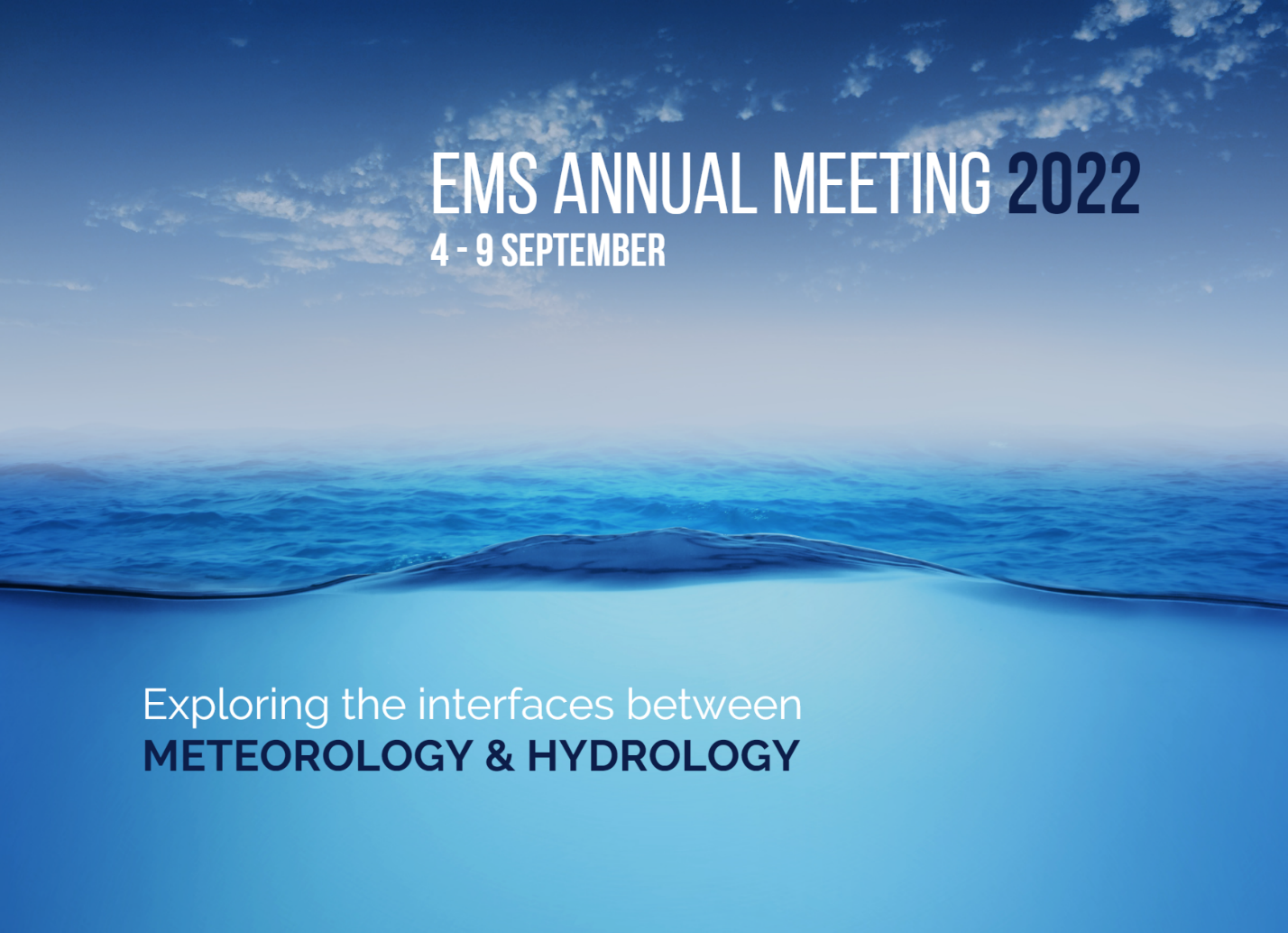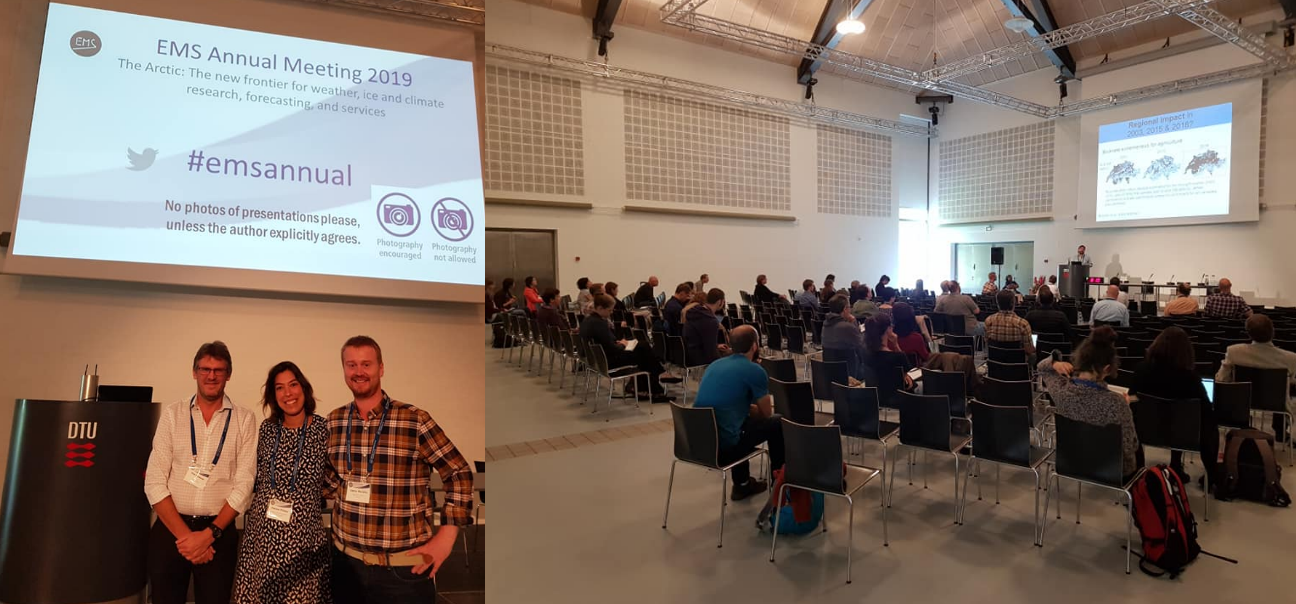Exploring the interfaces between meteorology & hydrology: submit your abstract at EMS 2022!
Contributed by Fatima Pillosu, session convenor at EMS2022
 In order to provide useful forecasts for extreme, complex natural hazards, it is imperative to understand the interactions between the Earth’s atmosphere and its land surface. For example, when a flood forecast is issued, previous soil moisture conditions and future rainfall must be considered as they can modulate the intensity of a flood event. Likewise, vegetation and the moisture available for evaporation must be considered when providing temperature forecasts as they can modulate minimum and maximum temperatures. Sciences such as meteorology and hydrology act in tandem across the interface between the Earth’s atmosphere and land surface. Thus, such sciences, which until now were primarily developed in isolation, have undergone an evolutionary path to facilitate fruitful interactions. As an example of such evolution, many national meteorological services around the world have been evolving, formally or informally, into national hydro-meteorological services.
In order to provide useful forecasts for extreme, complex natural hazards, it is imperative to understand the interactions between the Earth’s atmosphere and its land surface. For example, when a flood forecast is issued, previous soil moisture conditions and future rainfall must be considered as they can modulate the intensity of a flood event. Likewise, vegetation and the moisture available for evaporation must be considered when providing temperature forecasts as they can modulate minimum and maximum temperatures. Sciences such as meteorology and hydrology act in tandem across the interface between the Earth’s atmosphere and land surface. Thus, such sciences, which until now were primarily developed in isolation, have undergone an evolutionary path to facilitate fruitful interactions. As an example of such evolution, many national meteorological services around the world have been evolving, formally or informally, into national hydro-meteorological services.
Both communities would benefit greatly from participating in events and activities that support the integration of their joint expertise. In 2019, EMS inaugurated “Exploring the interfaces between meteorology and hydrology”, an all-embracing hydro-meteorological session with the goal to showcase current efforts to move towards a fully integrated and physically realistic single numerical representations of the entire earth system. The longer-term aim to be pursued in future sessions, is to build a larger and influential hydro-met voice within the EMS community which can stimulate knowledge transfer, and accelerate the integration process between the two disciplines.

“Exploring the interfaces between meteorology and hydrology” inaugural session at EMS in 2019
Experts in, but not limited to, subsurface/surface hydrological processes, land-atmosphere interaction, and forecasting hydro-meteorological extremes participated in the session. Topics covered so far are wide-ranging. Examples are lake temperature prediction, snowmelt impacts, spatio-temporal statistics of rainfall extremes and discharge, the use of rescued data for drought and flood reconstruction, impacts of meteorological and hydrological models on predictive skill for flash floods, atmospheric rivers, monthly and seasonal hydrological predictions, groundwater modelling in an Earth system model framework, estimation of discharge values from rainfall measurements, and short- and long-range forecasts of droughts.
In its first year (2019), the session was well received in terms of abstracts submitted (19 talks and 6 posters ) and attendance (which peaked at around 100 people during the morning session). In 2021, the session maintained high numbers despite the conference’s virtual format. The EMS Programme and Scientific Committee were also highly pleased with this new session’s submission level and turnout. Therefore, as conveners, we are working to build on this previous success.
We invite all those working in hydro-meteorology to submit abstracts for the 2022 edition of the EMS Annual Meeting, held in Bonn from 4th to 9th September. We invite contributions across a wide range of spatial scales (from 10s of meters up to global) and time scales (from ~1 hour up to seasonal and climate change), including, but not limited to, the following topics:
- land-atmosphere interaction and hydrological processes, including feedback mechanisms;
- understanding the meteorological processes driving hydrological extremes;
- tools, techniques, and expertise in forecasting hydro-meteorological extremes (e.g. river flooding, flash floods etc.);
- fully integrated numerical earth system modelling;
- quantification/propagation of uncertainties in hydro-meteorological models;
- quantification of (past/future) hydrological trends in observations and climate models;
- hydro-meteorological prediction that includes the associated impacts;
- related cryospheric processes;
- environmental variable monitoring by remote sensing.
- droughts
We also hope to organise a “Get-together dinner” for participants in our session as, in 2019, it proved to be a very welcomed networking opportunity.
Submit your abstract here[1] by the 26th of April 2022. We are looking forward to hearing about your exciting research!
- https://meetingorganizer.copernicus.org/EMS2022/session/44443 ↑
0 comments